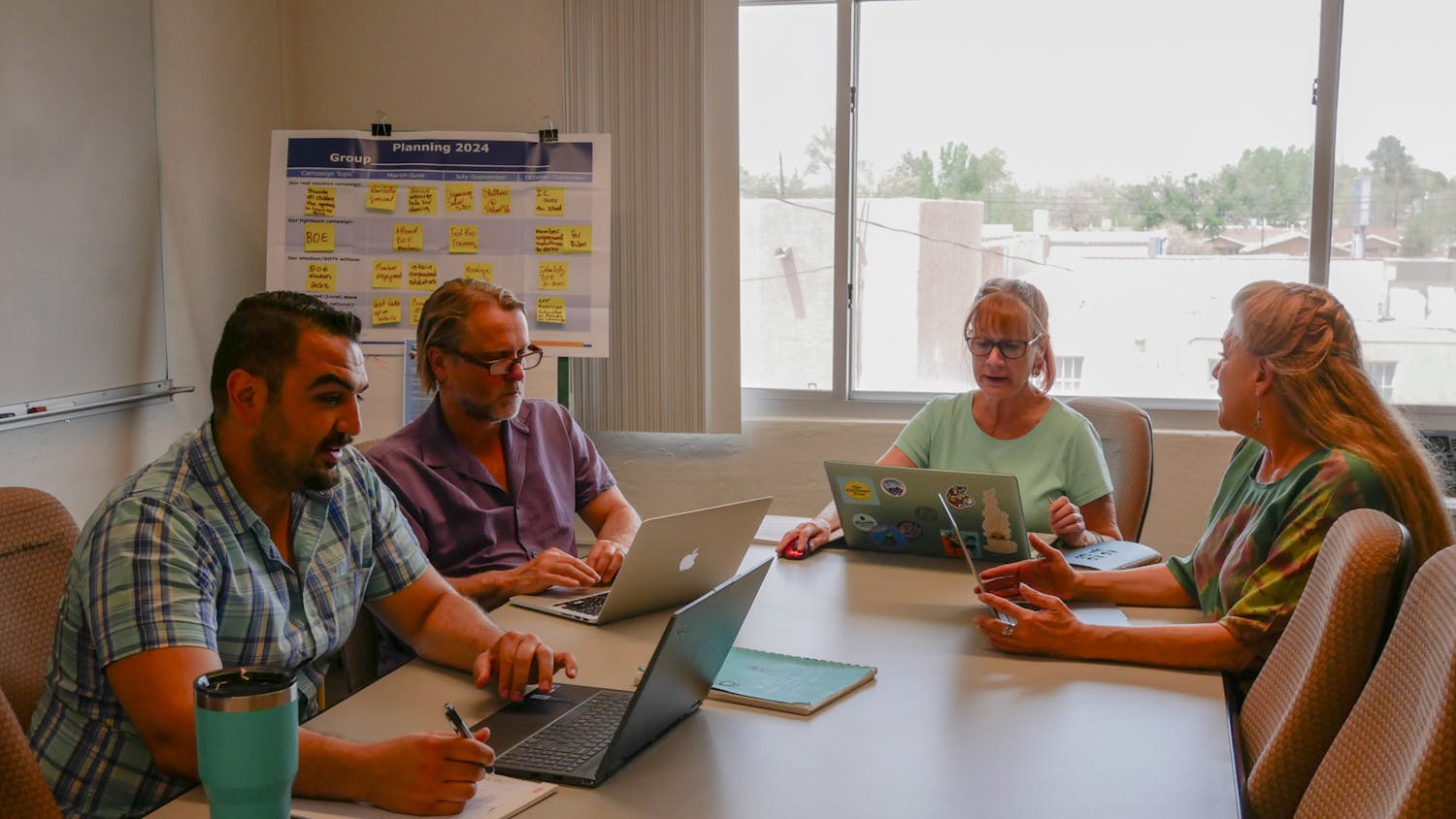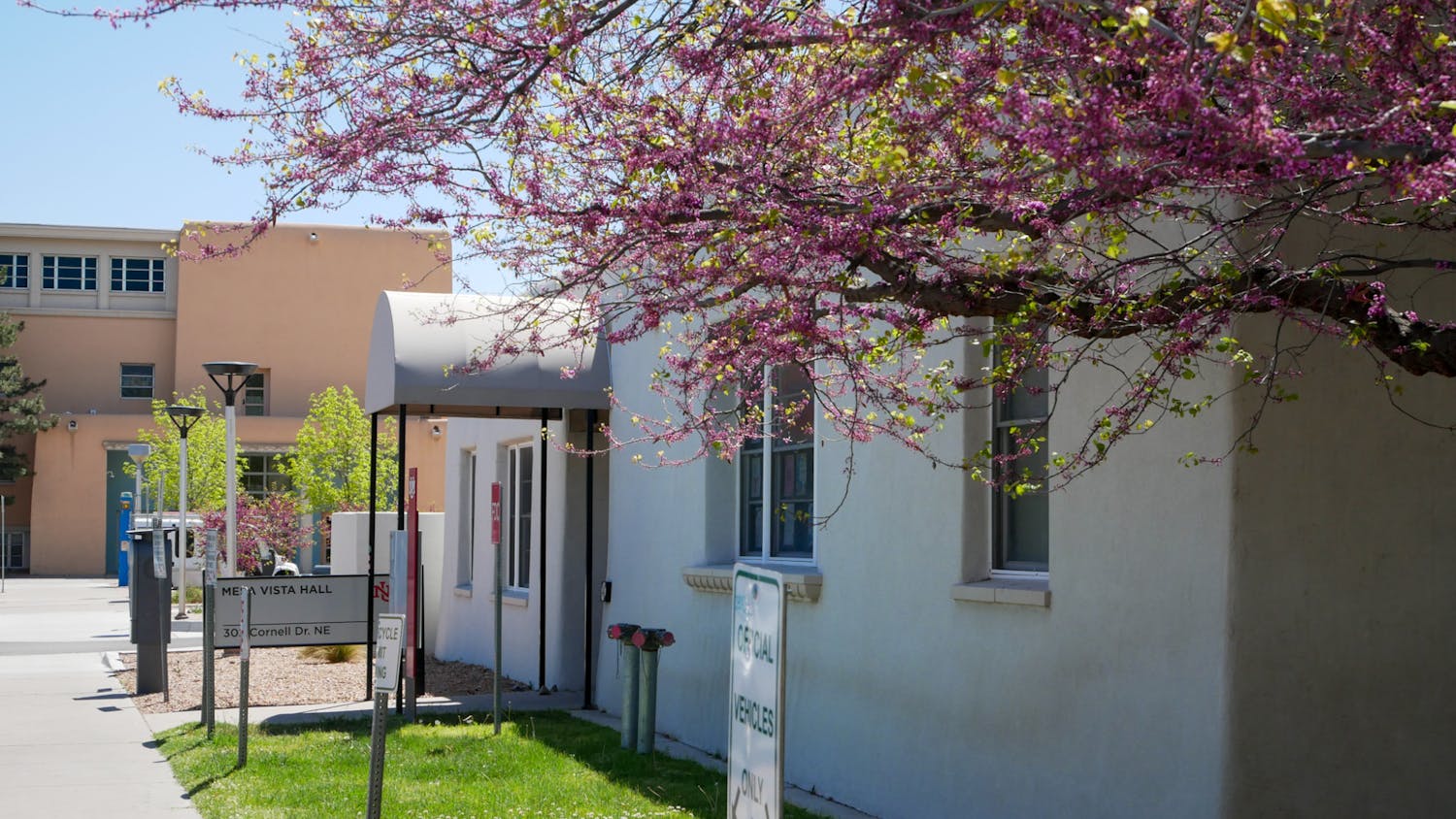The Senate introduced a bill that would grant graduate assistants employee status and allow them full benefits, but the bill’s sponsor said he doesn’t think the state is in a financial position to pass it.
SB 400, sponsored by Sen. Jerry Ortiz y Pino (D-Albuquerque), would give graduate assistants employee benefits, such as sick leave, unemployment and hourly restrictions.
“The odds are long that it’ll pass,” he said. “Sometimes you have to introduce these things to get the discussion rolling. It’s the first volley in the process.”
The bill is in the Senate Education Committee awaiting debate, but according to an analysis performed by the UNM Graduate and Professional Student Association, consequences of not passing the bill include, “Low employee morale, poor graduation rates, ineffective learning environments, increased instructional costs, agitated campus climate and student unrest.”
UNM employed 1,679 graduate assistants during the fall 2010 semester, according to a state analysis. Nearly 70 percent were combined research and teaching assistants.
Graduate assistants are students enrolled in a master’s or doctoral degree program and employed as teaching, research, graduate or project assistants at their universities.
“It will improve the quality of education in New Mexico,” GPSA President Lissa Knudsen said. “We don’t see much downside.”
The University employs half the state’s graduate assistants, according to the Higher Education Department.
The positions are also essential to undergraduate course work. Teaching assistants teach 20 percent of all undergraduate classes, according to the Board of Regents.
On average, research assistants are the highest paid, pulling in roughly $1,600 a month last year. In 2010, teaching assistants earned $1,484 per month, graduate assistants earned $1,332 a month, and project assistants were paid $657 each month, according to the GPSA analysis.
Along with tuition costs, the average salary is not enough to constitute a fair living wage, Ortiz y Pino said. Although classifying graduate students as employees will cost the state more money, he said the long-term benefit is important.
“The reality is that we can do any of these measures if we have the will,” he said. “We would have to plan to increase the revenue stream elsewhere.”
Ortiz y Pino said the state can make one of three moves to increase revenue: Support nearly $300 million in
short-term revenue bonds, stretch Medicaid dollars by instituting a provider assessment that could streamline $200 million in revenue, or raise taxes.
Get content from The Daily Lobo delivered to your inbox
Each plan faces a long-standing debate in the Roundhouse because opponents fear the state is too deep in debt to form or add any new administrative systems, including giving graduate assistants full employee benefits.
“This is always the argument against what’s just,” Ortiz y Pino said.
Open all government meetings to the public HB 367 would require live Internet video and audio transmission for public entities conducting public business and would require the Legislature to database its proceedings on a free, public website.
James E. Smith (R-Sandia Park) sponsored the bill, and it is awaiting debate in the House Health and Government Affairs Committee.
“To truly promote open government, we have to allow full access, regardless of distance, disability or difficulty to attend meetings,” Smith said.
If passed, all government boards, commissions and administrative entities would be required to have systems set up to broadcast meetings by Jan. 1, 2012.
All meetings would have to provide access and notification in accordance with the Open Meetings Act.
Currently, the Legislature webcasts live committee meetings on its website, but the sessions are not on archived on an accessible database.
The bill would require government entities to post agendas no later than a week after a meeting.
It also defined meetings as, “A gathering of a quorum of the members of a standing or interim committee or policy making body or conference committee held for the purpose of discussing public business.”





